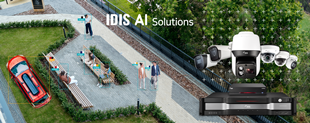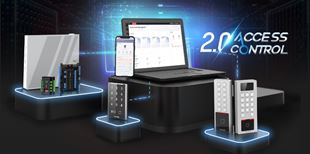Intelligent technology can make a big contribution to a safer and more secure society – if it is used efficiently. Security technology knowledge needs to have a much higher priority among governments if crime fighting results and return on invested tax payments are of high importance. The necessity is to combine technology and human resources. For example, there are studies in New Jersey that prove that the way police interact with security camera systems is crucial for the result of the technology investment. Combining the benefits of security cameras with the police advantages of human forces (police officers or guards) is the right way, then the chances of success in both preventing crimes and bringing criminals to justice increases heavily. The installed technology by itself is not good enough; neither are human forces working alone.
Government spending will continue. An example of a technology trend in this segment is that 400,000 body worn cameras will be shipped to law enforcement agencies globally in 2017 – a new record.
With all this in mind the security industry is facing a very exciting future. New technology and trends are also creating opportunities through new business models. Investments in security systems have previously been regarded as a cost at the end of the value chain and have thus become low priority in limited budgets. But network cameras and IP-based access control systems now provide value-added services to end users, increased productivity, and reduced operating costs. These benefits will move security further into the value chain and lead to increased demand.
With this development, which is increasingly based on combined solutions, system integrators will become more IT-oriented, and the requirements for distributor technical skills will be greater. IT skills are an important service for all vertical segments, as it is essential for the security industry to be able to deliver smart IoT solutions. Therefore, requiring competence will be a big challenge for the security industry.
The migration from analogue to digital technology into security systems has been completed. As an example, in 2017 IHS estimates the number of shipped network cameras for distribution through professional channels will exceed 98 million units.
With this IP-revolution the development towards new, more convenient and more cost-effective security solutions has increased with pace. Add on the growing opportunities offered by the Internet of Things.
What is still waiting in the wings to revolutionise the security market and thus the fight against crime is the increasingly sophisticated video analysis. The development of artificial intelligence (AI) in general - and towards “Deep learning” in particular - will have a tremendous significance in relation to proactive security systems, not least in video surveillance systems.
Digitalisation has also started a revolution in the physical access control segment, as it is on its way to be integrated with logical security. Access control in combination with identity management is becoming increasingly sought after. And access control as a service is only in its infancy. There is simply a lot of interesting things going on right now.
At the same time there is a huge challenge to face - cyber security in the increasingly connected security systems. How do we secure the products and networks against hacker attacks? That is one of the biggest challenges of the security industry.



















